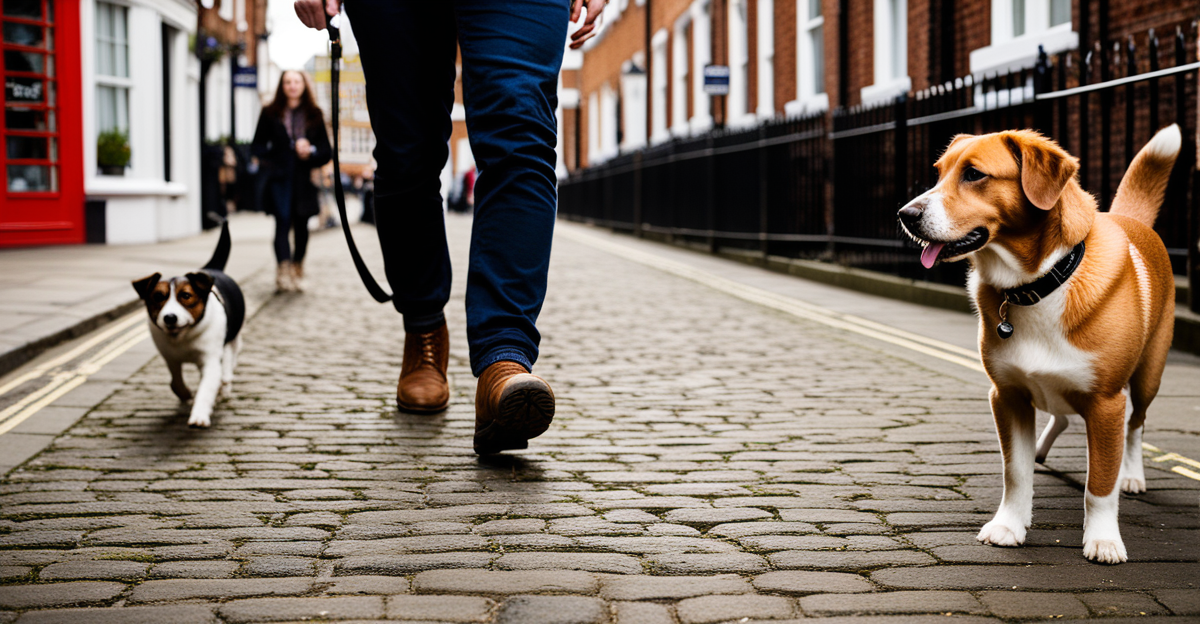Core Characteristics of a Pet-Friendly City in the UK
Understanding what defines pet-friendly city features is essential for pet owners living in or moving to the UK. A truly pet-friendly urban environment starts with inclusive pet policies and regulations that support the well-being and safety of animals while respecting all residents. These policies typically include responsible pet ownership rules, flexible dog-walking regulations, and limits on restrictions that could hinder pets’ access to communal spaces.
Central to UK city criteria for pet-friendliness is ample access to parks, green spaces, and walkable areas that encourage daily exercise and socialisation for pets. Cities that prioritise green infrastructure often have more interconnected walking routes and designated dog-friendly zones, making it easier for owners to meet their pets’ physical and mental stimulation needs.
Also to discover : How Can Owning a Pet Benefit Your Health and Well-being in the UK?
Another fundamental characteristic is the availability of pet services and amenities. This means a city should offer numerous veterinary clinics, pet shops, grooming services, and specialised care facilities within accessible distances. Having a strong network of such services underpins a pet-owning resident’s ability to provide comprehensive care without extensive travel, improving overall quality of life for pets and owners alike.
Together, these core features create an environment where pets are welcomed, cared for, and integrated into daily city life, reflecting a holistic approach to urban pet management that benefits both animals and their human companions.
Topic to read : How Can Pet Owners in the UK Choose the Best Food for Their Animals?
Core Characteristics of a Pet-Friendly City in the UK
A truly pet-friendly city thrives on well-crafted urban pet policies that balance animal welfare with community needs. Effective urban pet policies minimize conflicts between pet owners and the broader population by enforcing responsible ownership, such as leash laws tailored to varied environments and designated off-leash zones that promote safety and freedom for pets. These policies also address waste management and noise control to maintain harmony in shared spaces.
Beyond regulations, UK city criteria emphasize widespread access to green spaces as a cornerstone of pet-friendly living. Parks and connected walkable areas allow daily exercise essential for pets’ physical health and socialisation. Importantly, these green spaces must not only be plentiful but also maintained to a high standard and equipped with pet amenities like water stations and waste disposal bins. Such infrastructure reflects a city’s commitment to integrating pets into daily urban life.
Equally vital is the accessibility of comprehensive pet services and amenities. This encompasses veterinary practices diverse in specialties, pet supply outlets stocked with nutritious food and gear, and grooming salons providing tailored care. Cities meeting UK city criteria ensure these facilities are accessible via public transport and situated near residential areas to ease logistical challenges for busy pet owners.
In summary, the combination of clear, inclusive urban pet policies, abundant and well-maintained green areas, and a robust network of pet-centric services forms the backbone of pet-friendly city features sought after in the UK. These elements collectively create an environment where pets and their owners can flourish, underscoring a city’s dedication to inclusive, sustainable urban living for all inhabitants.
Leading UK Cities Setting the Standard for Pet-Friendliness
Several best UK cities for pets are consistently recognised for their commitment to pet-friendly city features and meet stringent UK city criteria that support animal well-being. Cities like Brighton, Edinburgh, and Bristol often top pet-friendly rankings due to their proactive approaches to urban pet policies and robust infrastructure. For example, Brighton offers extensive off-leash zones and promotes responsible pet ownership through local initiatives, making it attractive for pet owners.
These leading cities feature innovative policies such as designated dog-walking areas, pet waste stations, and community engagement programs that encourage harmonious coexistence between pets, owners, and non-pet residents. Edinburgh’s urban planning prioritizes green corridors that connect parks and residential neighbourhoods, facilitating safe and enjoyable exercise for pets. Meanwhile, Bristol’s city council actively collaborates with animal welfare organisations to improve public awareness and pet care amenities.
Supporting data underpinning such pet-friendly rankings include positive survey results from pet owners, statistics on park accessibility, and the density of veterinary services and pet shops—all aligning with recognised UK city criteria. The emphasis on a balanced approach combining urban pet policies with practical amenities sets these cities apart as benchmarks for pet-friendly living in the UK.
Essential Amenities and Services for Pet Owners
A key pillar of pet-friendly city features is the broad availability of veterinary services UK residents can trust. Access to veterinary clinics that offer everything from routine check-ups to emergency care and specialised treatments is critical in ensuring pets receive timely medical attention. In cities meeting the highest UK city criteria, these clinics are strategically located across neighbourhoods, reducing travel time for owners and encouraging regular health monitoring.
Complementing veterinary care are essential pet care facilities, including pet shops supplying diverse, high-quality food and products tailored to different breeds and ages. Grooming services also form a vital part of the urban pet ecosystem, providing hygiene and wellness care that contributes to pets’ overall well-being. Cities prioritising these amenities often feature pet salons and mobile grooming units, making services more accessible and flexible.
Furthermore, truly pet-friendly public spaces enhance pet owners’ everyday experiences. This includes thoughtfully designed parks equipped with clean water points, seating areas, and dedicated dog exercise zones that make outings safer and more enjoyable. Importantly, consideration of pet needs extends to transportation options, with some UK cities integrating pet-friendly policies in public transit systems, helping owners commute more easily alongside their animals.
Altogether, the convergence of accessible veterinary services UK, comprehensive pet care facilities, and well-designed pet-friendly public spaces define the practical infrastructure that supports pet owners in urban environments. These components not only improve quality of life for pets but also empower owners to provide consistent, high-quality care with ease.
Community Attitudes and Social Support Networks
Understanding community support for pets is a vital aspect of the overall pet-friendly city features. Positive public attitudes toward animals foster a welcoming environment where pet owners feel supported and pets thrive. This social backing is visible through vibrant UK pet owner communities that organise meetups, training groups, and recreational activities tailored for pets and their owners. These gatherings strengthen bonds among residents and promote responsible pet ownership.
Volunteer and rescue organisations contribute significantly to this supportive network, offering outreach programs that aid stray and vulnerable animals while encouraging adoption and fostering. Their presence within urban areas reflects strong community engagement, a key component aligned with broader urban pet policies. Many of these groups collaborate with local councils and vets to conduct educational drives and assist with lost pet reunification efforts.
Public awareness campaigns designed to enhance understanding of pet welfare and community responsibilities further boost supportive attitudes. These campaigns complement formal urban pet policies by nurturing respect and cooperation among all residents. By fostering a culture of empathy and inclusion, cities improve both animal welfare and the social fabric, solidifying the link between effective urban pet policies and enriched community support for pets.






